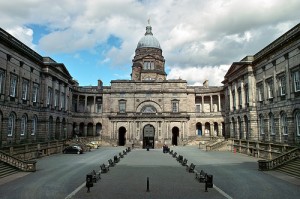
In 1861, the first year of the Civil War, soldiers on both sides still felt some sense of momentum. Overly optimistic, many believed the war would over by Christmas. As the war stretched into 1862, the initial optimism was giving way to something else – a sense of failure and despair. And that sense affected both sides.
The South was beginning to feel the bite of the Union blockade of Southern ports. The North was watching a series of what seemed like only Confederate victories on the battlefield. Soldiers were becoming demoralized. It didn’t help the Union’s cause that so many senior officers were “political generals” and appeared sorely lacking in experience and common sense. The sense of failure and isolation was especially acute around Christmas, when soldiers would have ordinarily been home with their families.

Using books, articles, letters (both published and unpublished), archival papers, and diaries, author James McIvor has written God Rest Ye Merry, Soldiers: A True Civil War Christmas Story. He’s provided a snapshot of what the Christmas season was like during the four years of the Civil War. His focus is the soldiers, what they thought, what they experienced, and often why they wanted to be anyplace other than where they were. The book was first published in 2006.
Sometimes the Christmas season and holiday coincided with battles, and soldiers found themselves marching to battle when they would have preferred to be at home, or at worst sitting around a campfire and enjoying a good meal. More often, Christmas was quiet, leaving too much time to think and reflect, and miss fallen colleagues and the family at home.
He points out that the Civil War changed perceptions of the holiday. The suffering on both sides had been great, and the feelings about Christmas that had been growing for decades before the war became something much stronger with the end of the way. “The Civil War, in fact,” McIvor writes, “made Christmas a truly American holiday in a way it had never entirely been before.”
McIvor is a longtime Civil War enthusiast and freelance writer. He lives in Virginia.
God, Rest Ye Merry, Soldiers is a poignant narrative, but it avoids sentimentalism. Soldiers who served before and after the Civil War would likely find some of their own story here.
Top illustration: Christmas Eve 1863 by Thomas Nast, the German-born Civil War cartoonist who is credited with creating the image of Santa Claus.








